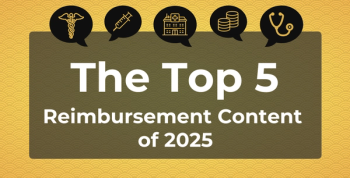
As the Cost of Life-Saving Cancer Therapies Increases, Patient Access Network Foundation Fills Critical Need
The Patient Access Network or PAN Foundation formed more than 10 years ago, partially in response to the Medicare Part D benefit. It helps patients meet cost-sharing requirements across dozens of diseases, including 25 in oncology; Evidence-Based Oncology, a publication of The American Journal of Managed Care, invited PAN Foundation President and CEO Dan Klein to discuss its role in immuno-oncology.
FOR IMMEDIATE RELEASEFebruary 27, 2015As the Cost of Life-Saving Cancer Therapies Increases, Patient Access Network Foundation Fills Critical Need
PLAINSBORO, N.J.—In recent years, after the FDA approved therapies like sipuleucel-T to treat hormone-refractory prostate cancer, or ipilimumab to treat metastatic melanoma, patients who were candidates for these treatments faced both the prospect of longer-term survival, but also the question: how do I pay for it?
As access to insurance coverage increases, and more life-extending immuno-oncology therapies pass muster with FDA, the gap between what science can do and what patients can afford has created challenges for everyone: providers, payers, policymakers, and most of all, patients. Fortunately, the Patient Access Network (PAN) Foundation helps patients narrow that gap, by giving the underinsured financial support to meet cost-sharing requirements for breakthrough therapies.
In the recent issue of Evidence-Based Oncology, a publication of The American Journal of Managed Care, PAN Foundation President and CEO Dan Klein authored a commentary that discussed the foundation’s mission, promising scientific developments, and the changing cost-sharing burden—as therapies are prescribed for much longer periods of time.
As Klein reports, the need is growing “as more Medicare Part D plans and commercial insurers are requiring a higher percentage (25 to 33 percent) of coinsurance for specialty drugs.” While this means patients may qualify for catastrophic coverage sooner, Klein writes, these benefit design changes also mean that some patients won’t have access to the best cancer therapies, and others will have poor adherence for cost reasons.
To read the complete commentary,
About the Journals
The American Journal of Managed Care celebrates its 20th year in 2015 as the leading peer-reviewed journal dedicated to issues in managed care. Other titles in the franchise include The American Journal of Pharmacy Benefits, which provides pharmacy and formulary decision-makers with information to improve the efficiency and health outcomes in managing pharmaceutical care, and The American Journal of Accountable Care, which publishes research and commentary on innovative healthcare delivery models facilitated by the 2010 Affordable Care Act. AJMC’s Evidence-Based series brings together stakeholder views from payers, providers, policymakers and pharmaceutical leaders in oncology and diabetes management. To order reprints of articles appearing in AJMC publications, please call (609) 716-7777, x 131.
CONTACT: Mary Caffrey (609) 716-7777 x 144
mcaffrey@ajmc.com
Newsletter
Stay ahead of policy, cost, and value—subscribe to AJMC for expert insights at the intersection of clinical care and health economics.









